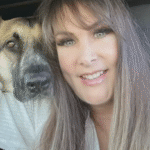
Ban on the Retail Sale of Dogs, Cats and Rabbits Takes Effect on 12-15-2024
On December 15, 2022, Governor Kathy Hochul signed the Puppy Pipeline Bill (S.1130/A.4283) to ban the retail sale of dogs, cats, and rabbits. This legislation will take effect in 2024 and will also allow pet stores to charge shelters rent to use their space for adoptions, both changes from the bill as passed by the legislature.
Animal advocates have been calling on Governor Hochul to sign the bill since it passed both houses of the New York State Legislature with overwhelming bi-partisan support in June. CAPS President Deborah Howard did interviews with CBS6 in Albany and FOX5 in New York City, calling on the governor to sign the legislation
CAPS New York Director Barbara Dennihy discussed CAPS’ investigative work in an article in the East Hampton Patch.
CAPS and other nonprofits worked for four years to get this critical legislation passed by the legislature. CAPS was also behind regulatory ordinances in New York City, Nassau and Suffolk Counties.
In 2019, CAPS released a video unlike any that’s ever been produced by anyone. It documents our five-year investigation (2013 – 2018) of every pet shop (originally 100; now 60) in New York State—and many of the puppy and kitten mills supplying them—for a project with the New York Attorney General, with whom we have been working since 2005. Below is our short documentary, which we also presented to legislators:
All of the pet shops CAPS investigated in New York denied using mills. Instead, they said their animals came from USDA-licensed breeding facilities. USDA-licensed breeding facilities are puppy and kitten mills. The pet shops’ false statements didn’t end there. Pet shops lied about visiting their breeders to inspect them. They lied about how many animals their breeders had. They lied about the conditions those animals lived in. CAPS even uncovered a bizarre and widespread new tactic in New York City—pet shops lied about the definition of a “Class A” USDA license.
Sadly, consumer fraud like this is typical at pet shops, where employees often say whatever it takes to sell a puppy or kitten. And unfortunately, it tends to work. Despite price tags of $6,000 and more, puppies sell. Constantly. Meanwhile, the parents of those puppies are crammed into tiny wire cages, receiving minimal veterinary care and being forced to breed on every heat cycle.
CAPS has continued to investigate New York pet shops and the mills that sell to them:
New Yorkers have spoken loud and clear about their desire to end the cruel practice of breeding puppies, kittens and rabbits in mills for sale in New York pet shops. The enactment of this legislation by New York, which used to have the most pet shops in the country (Florida now has 68), will inspire other states to follow suit.




